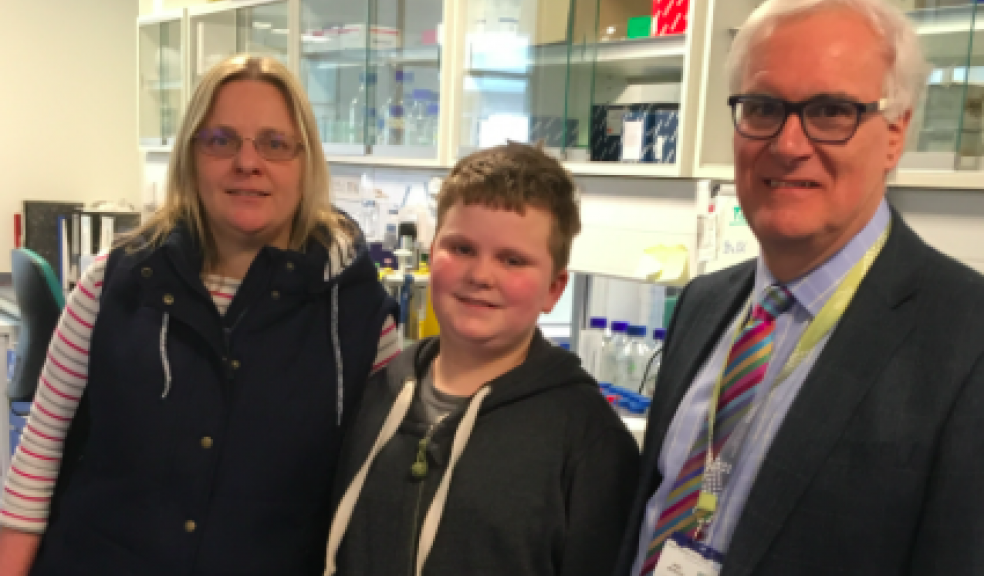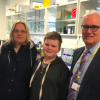
Exeter research lab opens doors to Cornish boy with diabetes
A research lab at Exeter Medical School opened its doors to an 11-year-old boy who has Type 1 diabetes so that he could learn about groundbreaking research into his condition.
Daniel Lindley and his mum Karen from Lostwithiel in Cornwall joined a tour of the Islet Cell Biology lab to meet Professor Noel Morgan and other diabetes researchers who are funded by Diabetes UK.
The visitors learnt how Professor Morgan and his team have access to a rare set of pancreas samples, taken from people who had been recently diagnosed with Type 1 diabetes. In Type 1 diabetes, the body’s immune system attacks insulin-producing cells in the pancreas, but no one currently knows how or why. By studying pancreas samples, the Exeter team are hoping to understand more about the immune attack in a bid to develop new treatments that stop or prevent Type 1 diabetes.
Daniel had the opportunity to study clusters of insulin-producing cells, known as islets, through a microscope and even watch cells communicating with each other on a computer screen, thanks to special dyes that make them fluorescent.
The Fowey River Academy schoolboy, who was diagnosed with Type 1 diabetes aged six and relies on daily doses of insulin to stay alive, is now interested in a career in scientific research.
He and his mother Karen Lindley are members of SKYD (Supporting Kernow Young Diabetics), a Diabetes UK support group which raises money for research into Type 1 diabetes.
After the visit, Karen Lindley said: “What they are doing in Exeter is unbelievable. I feel one hundred per cent positive that diabetes research is going somewhere and will help generations to come. And what was clear is that the researchers were not just there to show us around; they’re there for our future. They care.”
Professor Noel Morgan, director of the Institute of Biomedical and Clinical Science at Exeter Medical School, said: “The visit was incredibly valuable for our team and very humbling. There is nothing like being able to talk to people affected by diabetes. Their enthusiasm for our work was inspiring and made us realise that we have to keep doing this and do our best for people living with diabetes.”
Diabetes UK is the leading charitable funder of diabetes research in the UK, investing around £7 million every year to bring about life-changing breakthroughs in care, treatment and prevention, ultimately bringing us closer to a cure.
Dr Emily Burns, Head of Research Communications at Diabetes UK, said: “By funding critical research like Professor Morgan’s, we’re hoping to develop new insights into how Type 1 diabetes develops and what needs to be done to stop it.
“We’re only able to fund world-class research thanks to the generosity of our supporters, and we’re thrilled that Daniel and Karen had the opportunity to see it first-hand.”
To find out more about research into diabetes, go to www.diabetes.org.uk/research


















